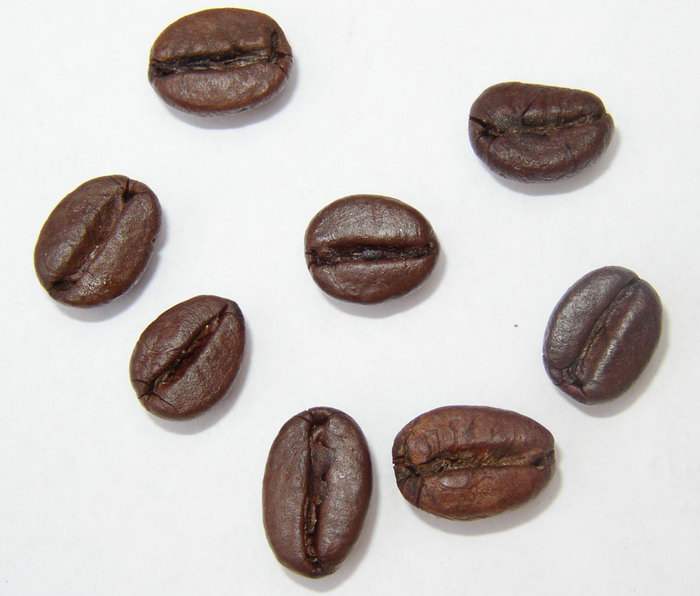Coffee growing areas in Yunnan, history of coffee in Yunnan
Pay attention to coffee reviews (Weixin Official Accounts vdailycom ) and find a beautiful cafe to open your own shop
In 1892, French missionaries planted a coffee tree seedling on the land of Zhukula in the small mountain village, and China has been predestined to coffee since then.
At the end of the 19th century, missionaries came to Dali Binchuan Yupao River this small mountain village built on the mountain, the whole village is covered by green trees, in front of the village is layers of different shades of green terraces, far away can also see hanging clouds in the sky.
Missionaries built a church with blue tiles and white walls here, and planted coffee seedlings outside the church.
Coffee seedlings came to Yunnan, as if to find the feeling of home, immediately adapted to the red plateau altitude, soil, temperature, precipitation, slowly bred into a coffee forest.
During the Republic of China, local villagers liked coffee with missionaries. Until today, coffee is still served to guests in this remote southwest rural area of China. They will roast it in their own large iron pan, then grind the coffee powder on the stone mill, and finally wrap it in gauze and boil it in a teapot just like Turkish coffee.
This is how isolated villages become associated with coffee.

In 1887, after the end of the Sino-French War, the Qing government signed a contract with France and was forced to open Yunnan Mengzi as a treaty port. This was Yunnan's earliest treaty port and soon attracted foreign businessmen. French, British, American, Japanese, Italian, German and Greek foreign companies landed here one after another.
The "Dian-Yue Railway Bar" located at the Dian-Yue Railway Station was the product of this time.
Although it is called a bar, it actually sells coffee, a practice that comes from France, where cafes are characterized by a mixture of cafes and bistros.
This is only the beginning of the future popularity of Mengzi coffee. In 1938, Peking University, Tsinghua University and Nankai University formed the famous National Southwest United University and moved south to Kunming. Due to the shortage of school buildings, the College of Arts and Law were moved to Mengzi. At that time, Wen Yiduo, Chen Yinke, Chen Daisun, Qian Mu, Wu Mi, Zheng Tianting and other famous scholars all lived in Gelushi Hotel on the south lake side of Mengzi.
The "South American Cafe" opened by Vietnamese expatriates living here is one of the favorite cafes for students of the United Nations General Assembly. It is said that a Vietnamese girl played the single-stringed zither here and attracted many admirers.
In 1949, when the People's Republic of China was founded, the villagers of Zhukula were still growing coffee and drinking coffee. At that time, a catty of coffee could be exchanged for two catties of salt, so village chief Li Fusheng mobilized villagers to plant coffee in large areas, with coffee trees up to 60 mu at most.
However, in addition to exchanging salt and supplying Binchuan Taihe Farm, Zhukula is no longer known to outsiders.
In the 1950s, Liang Jinshan, a patriotic overseas Chinese, returned home hoping to promote coffee cultivation. He also introduced new coffee seedlings from South Asia. With his financial support, Yunnan technicians cultivated high-yield Lujiangba Arabica coffee. He also sent his coffee samples to his old friend He Xiangning, who replied after receiving them: "The coffee tastes excellent. Thank you very much for your hospitality."
In the mid-1950s, Yunnan coffee cultivation area once reached 4000 hectares. Unfortunately, after the 1960s, Sino-Soviet relations broke down and 4000 mu of coffee plantations were artificially abandoned or replanted with other crops.
Until the end of the "**", only the roadside of the Burma Road, or the courtyard of the farm, can still see the shadow of coffee trees in Yunnan. Due to geographical reasons, 24 coffee trees planted by missionaries have been preserved in the remote village of Zhugula.
These coffee saplings have been sleeping quietly, waiting for someone to wake them up.
At the end of 1980s, a group of multinational groups entered Yunnan and finally revived Yunnan coffee planting. By the end of 1997, Yunnan coffee planting area had reached 7800 hectares, accounting for 83% of the country's output. During this period, China's economy developed rapidly and gradually integrated into the global economic system. The small Yunnan coffee beans were witnesses.
Now 100 years have passed, Yunnan Arabica coffee has been planted on a large scale in Lincang, Baoshan, Simao, Xishuangbanna, Dehong and other prefectures. Arabica coffee is mostly planted in dry and hot valleys at an altitude of about 1100 meters, so the acidity is moderate, the aroma is rich and mellow.
Yunnan's unique environment, the quality of small coffee produced excellent. Concentrated but not bitter, fragrant but not strong, well-proportioned particles, mellow and rich, and with fruit flavor and famous at home and abroad.
After inspecting Yunnan coffee planting and primary processing bases, experts from the International Coffee Organization evaluated Yunnan coffee as Colombia wet-processed Arabica coffee, which is the highest quality coffee in the world.
While coffee planting area and output are growing rapidly, coffee enterprises are also growing synchronously. Wang Pinghua introduced that the province's coffee primary processing capacity exceeds 150,000 tons and the intensive processing capacity exceeds 20,000 tons. The annual production capacity of instant coffee powder of Dehong Hougu Coffee Co., Ltd. has reached 13000 tons, which is the largest instant coffee powder production enterprise in China. Yunnan Aini Group and Starbucks have established a joint venture company, marking another substantial step forward in the internationalization of Yunnan coffee.
According to reports, China is one of the countries with the fastest growth in coffee consumption in the world, and the market space is huge. The Agriculture Department of Yunnan Province has formulated a plan to enhance the brand influence of "Cloud Coffee," and will speed up the establishment of standardized and ecological coffee parks, promote the construction of modern coffee estates, strengthen the identification of provincial coffee leading enterprises, and promote the quality improvement, efficiency enhancement and transformation and upgrading of coffee industry from many aspects.
Important Notice :
前街咖啡 FrontStreet Coffee has moved to new addredd:
FrontStreet Coffee Address: 315,Donghua East Road,GuangZhou
Tel:020 38364473
- Prev

Variety and taste of Yunnan coffee beans introduction to the flavor and taste characteristics of Yunnan coffee producing areas
Follow the caf é (Wechat official account vdailycom) and found that the Beautiful Cafe opened a small shop of its own. Catimor, also known as Katim, which was bred by the Portuguese in 1959, has 3/4 Arabica blood and 1/4 Robusta blood, and is extremely strong and resistant.
- Next

The best Vietnamese coffee, Vietnamese coffee introduction
Follow Kaiping (official Wechat account vdailycom) and found that Vietnamese coffee is made in Vietnam, which is a coffee shop of its own, as important as tea is to the Chinese. It is a penetration deep into the bone marrow. Almost all of the world's robusta coffee beans (Robustabean), which are often used to make instant coffee and high-end coffee blends, are exported from Vietnam. Vietnam is the world.
Related
- Detailed explanation of Jadeite planting Land in Panamanian Jadeite Manor introduction to the grading system of Jadeite competitive bidding, Red bid, Green bid and Rose Summer
- Story of Coffee planting in Brenka region of Costa Rica Stonehenge Manor anaerobic heavy honey treatment of flavor mouth
- What's on the barrel of Blue Mountain Coffee beans?
- Can American coffee also pull flowers? How to use hot American style to pull out a good-looking pattern?
- Can you make a cold extract with coffee beans? What is the right proportion for cold-extracted coffee formula?
- Indonesian PWN Gold Mandrine Coffee Origin Features Flavor How to Chong? Mandolin coffee is American.
- A brief introduction to the flavor characteristics of Brazilian yellow bourbon coffee beans
- What is the effect of different water quality on the flavor of cold-extracted coffee? What kind of water is best for brewing coffee?
- Why do you think of Rose Summer whenever you mention Panamanian coffee?
- Introduction to the characteristics of authentic blue mountain coffee bean producing areas? What is the CIB Coffee Authority in Jamaica?

